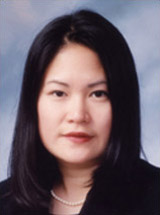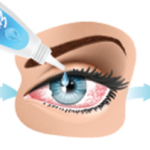When to Refer to an Ophthalmologist
When a rheumatologist sees a patient with newly diagnosed Sjögren’s, there may be some debate over when to refer that patient to an ophthalmologist. Should you refer if the patient’s dry eye is only mild or if they aren’t yet complaining of symptoms?
“I think they should check in immediately [with an ophthalmologist],” says Janet E. Church, CEO of the Sjögren’s Foundation. “You want them to prevent progression. If someone gets to the point where their eyes are killing them and that’s when they finally go see somebody, they’ve already caused damage.” Additionally, if the patient is put on hydroxychloroquine, a common therapy for patients with autoimmune diseases, they need to see an ophthalmologist every 6 to 12 months for specific testing to monitor for side effects.
Dr. Akpek agrees that patients should be referred to an ophthalmologist sooner rather than later. “Any patient with a suspicion or diagnosis of Sjögren’s should be referred. Patients with Sjögren’s have worse clinical findings than symptoms due to stage 1 neurotrophic keratitis, which can be detected only by vital dye staining of the ocular surface,” she says.
“I refer all patients with Sjögren’s to an ophthalmologist at diagnosis for a targeted exam, including glandular function assessment,” says Kimberly Lakin, MD, MS, a rheumatologist with the Hospital for Special Surgery, New York. “This can promote early detection, prevent ocular complications and ensure that appropriate topical treatment is offered.”
Ms. Church, who has Sjögren’s herself and counts nine doctors among the providers on her care team, says the referral to see another specialist also faces the challenge of time and priorities. “Sjögren’s is an incredibly expensive disease for the number of specialists and prescriptions and the number of over-the-counter products we need to stay comfortable each day. A lot of patients will push their priority appointment to what they feel like is bothering them most,” she explains.
Of course, ophthalmologists should refer patients to rheumatologists as well, on the basis of clinical suspicion or upon diagnosis of Sjögren’s disease.
Treatments Used
Over-the-counter artificial tears are supplementary treatments for both dry eye in general and dry eye in patients with Sjögren’s. Because dry eye is often more severe and progressive in those with Sjögren’s, anti-inflammatory treatments, such as topical cyclosporine (Restasis) or lifitegrast (Xiidra), should be prescribed irrespective of patient symptoms.



